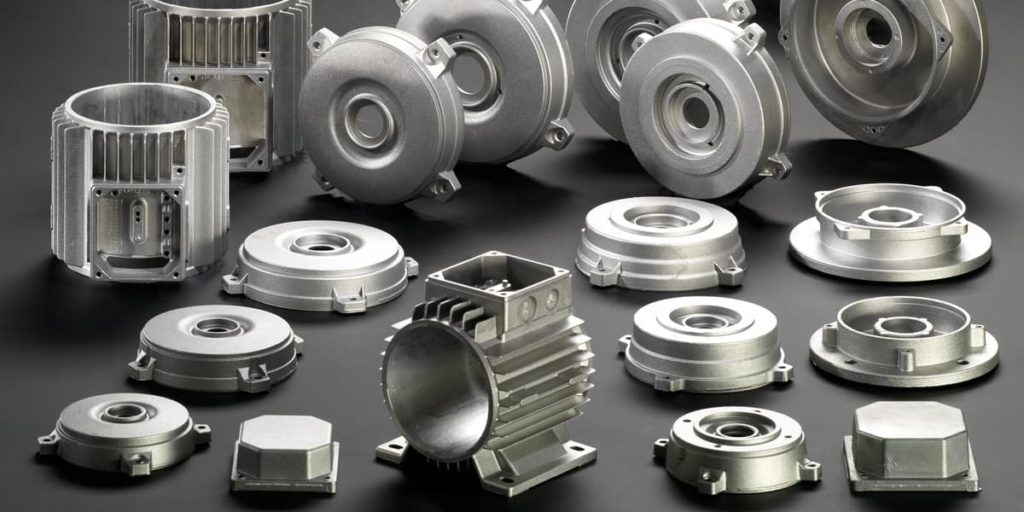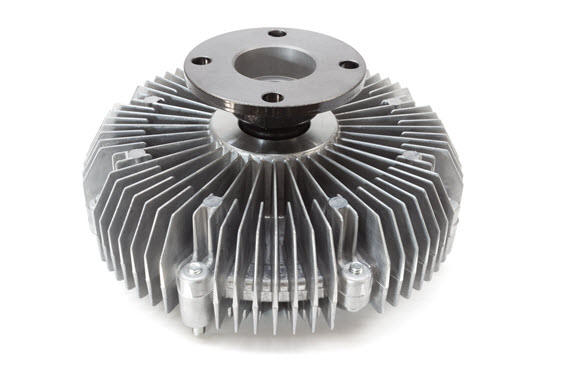Recognizing the Function of Aluminum Foundry in Creating High-Quality Metal Products
Aluminum foundries are important in the production of high-quality metal products. They utilize different casting strategies, such as sand and pass away spreading, to accomplish accuracy and longevity. With extensive high quality control measures in location, these centers guarantee that their products satisfy industry requirements. As sectors develop, the duty of Aluminum foundries continues to adjust. This questions regarding future developments and sustainability techniques that may redefine their impact.
The Aluminum Casting Refine: Advancements and strategies
The Aluminum casting procedure has progressed substantially, incorporating different methods and technologies that improve performance and product high quality. Generally, methods such as sand casting and pass away casting were primary; however, advancements have actually introduced processes like investment spreading and low-pressure die spreading. These developments enable makers to accomplish elaborate layouts and tighter tolerances, decreasing product waste and enhancing general performance.
The combination of computer-aided design (CAD) and simulation software allows for even more exact modeling and screening, guaranteeing that prospective problems are identified early in the production cycle. Aluminum Foundry. Furthermore, improvements in alloy formulas result in enhanced mechanical properties and deterioration resistance
These developments not only enhance production however likewise promote sustainability by decreasing energy usage and emissions. As the sector remains to accept new modern technologies, the Aluminum casting procedure remains a critical element in generating high-grade metal products that meet diverse market needs.
Applications of Aluminum in Different Industries
Light weight aluminum's adaptability and beneficial homes make it an important material throughout numerous industries. In the auto industry, Aluminum is extensively utilized for its light-weight qualities, contributing to improved fuel effectiveness and efficiency. The aerospace industry also benefits, as light weight aluminum's high strength-to-weight ratio boosts aircraft design while preserving safety and security standards.
In building and construction, Aluminum is favored for its resilience and resistance to corrosion, making it excellent for window frames, roofing, and structural parts. The product packaging sector leverages light weight aluminum's non-toxic nature and recyclability, particularly in food and beverage containers, making certain safety and sustainability.
In addition, the electrical sector uses Aluminum for its excellent conductivity in wiring and transmission lines. The durable goods sector uses Aluminum in products varying from cooking area tools to electronic devices, stressing its flexibility. Subsequently, Aluminum plays an essential duty in boosting performance, effectiveness, and sustainability throughout varied applications.
Advantages of Making Use Of Aluminum Over Various Other Metals
While many metals are used in different applications, Aluminum sticks out because of its distinct combination of properties that offer numerous benefits over other materials. Its light-weight nature considerably decreases transportation prices and energy consumption, making it ideal for sectors such as vehicle and aerospace. Aluminum's superb rust resistance improves durability, extending the life of products and minimizing maintenance demands. In addition, it exhibits high thermal and electrical conductivity, making it ideal for electric and thermal management applications.
The steel's pliability permits complex forms and elaborate layouts, giving flexibility in making processes. Aluminum is 100% recyclable without loss of top quality, promoting sustainability and lowering environmental influence. These attributes, integrated with its relatively affordable compared to various other steels, position Aluminum as a favored selection across numerous sectors. Generally, the benefits of Aluminum contribute to its enhancing appeal in the production of premium steel products

Quality Control Steps in Aluminum Foundries
Quality assurance actions play an important function in the Aluminum Foundry procedure, making certain that the last items fulfill strenuous industry standards and client assumptions. These actions typically begin with material assessment, where raw Aluminum is reviewed for purity and composition. When the casting procedure starts, temperature control is important; keeping optimal molten steel temperature levels stops issues such as porosity and contraction.
In addition, non-destructive screening (NDT) strategies, consisting of radiographic and ultrasonic inspections, are employed to detect internal flaws without harming the castings. Visual evaluations are also performed at different phases to determine surface flaws.
Moreover, adherence to recognized high quality management systems, such as ISO standards, is essential for keeping uniformity and traceability throughout the manufacturing procedure. Routine audits and employee training on quality criteria contribute to an overall society of excellence, guaranteeing that the products not just exceed yet satisfy client assumptions in efficiency and resilience.
The Future of Aluminum Foundries: Trends and Sustainability
As the Aluminum Foundry sector develops, arising patterns and an emphasis on sustainability are improving its landscape. Enhancing need for resilient and lightweight products in industries like auto and aerospace drives advancement in Aluminum casting methods. Advanced modern technologies, such as expert system and automation, are improving manufacturing effectiveness and accuracy while decreasing waste.
Sustainability is coming to be a vital concern, motivating foundries to apply environment-friendly practices, consisting of recycling Aluminum scrap and making use of sustainable power sources. The shift in the direction of circular economic climate concepts motivates foundries to lessen ecological effect while fulfilling customer expectations for sustainable products.
Additionally, regulative pressures are pushing the market towards cleaner procedures, cultivating cooperation in between producers and ecological organizations. As these patterns assemble, the look at more info future of Aluminum foundries will likely be characterized by a dedication to effectiveness, sustainability, and top quality, guaranteeing their relevance in an affordable market.
Regularly Asked Concerns
What Are the Environmental Effects of Aluminum Foundries?
Light weight aluminum foundries add to ecological influences with power intake, greenhouse gas discharges, and potential air and water contamination. Additionally, mining bauxite for Aluminum can bring about habitat damage and soil degradation, impacting local ecosystems.

How Do Shops Ensure Employee Safety During Production?
Shops apply extensive security protocols, including protective tools, ventilation systems, and routine training. They perform risk evaluations and keep safety and security standards to lessen dangers, guaranteeing a much safer working setting for employees throughout the manufacturing process.
What Certifications Should an Aluminum Foundry Have?
A light weight aluminum Foundry need to have certifications such as ISO 9001 for quality monitoring, ISO 14001 for ecological monitoring, and OSHA compliance for safety requirements. These accreditations guarantee adherence to industry laws and commitment to quality and safety techniques.
How Does Aluminum Recycling Affect Foundry Procedures?
Aluminum recycling substantially improves Foundry procedures by you can find out more supplying a cost-effective raw product resource, minimizing energy consumption, and lessening ecological effect - Metal Castings. It also motivates lasting practices, enabling shops to keep competitiveness in a swiftly developing market
What Are Common Flaws in Aluminum Castings?
Typical defects in Aluminum castings include porosity, contraction, inclusions, and surface area flaws. These issues can develop from inappropriate mold and mildew style, poor pouring methods, or contamination read the full info here throughout the melting and casting procedures, impacting general item quality.
